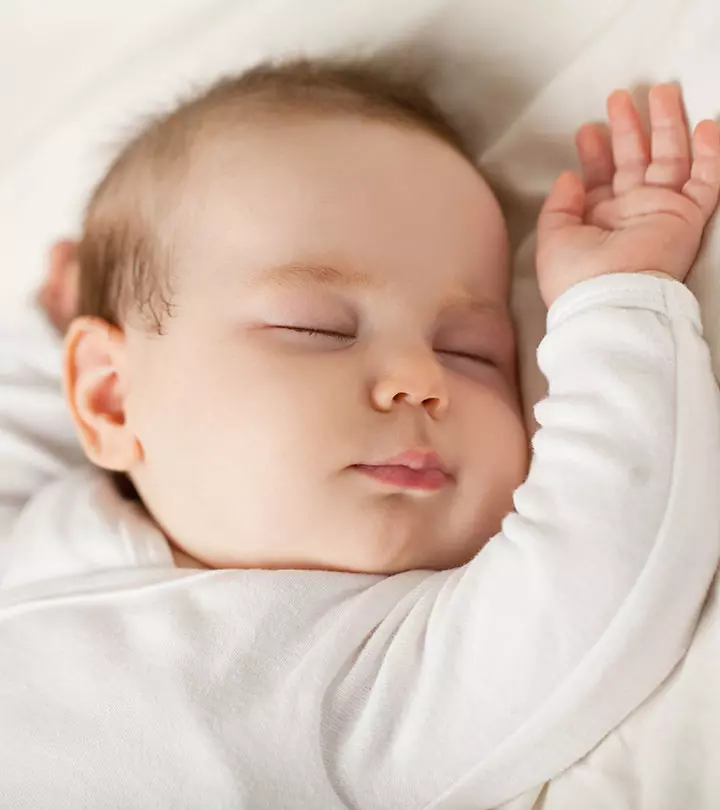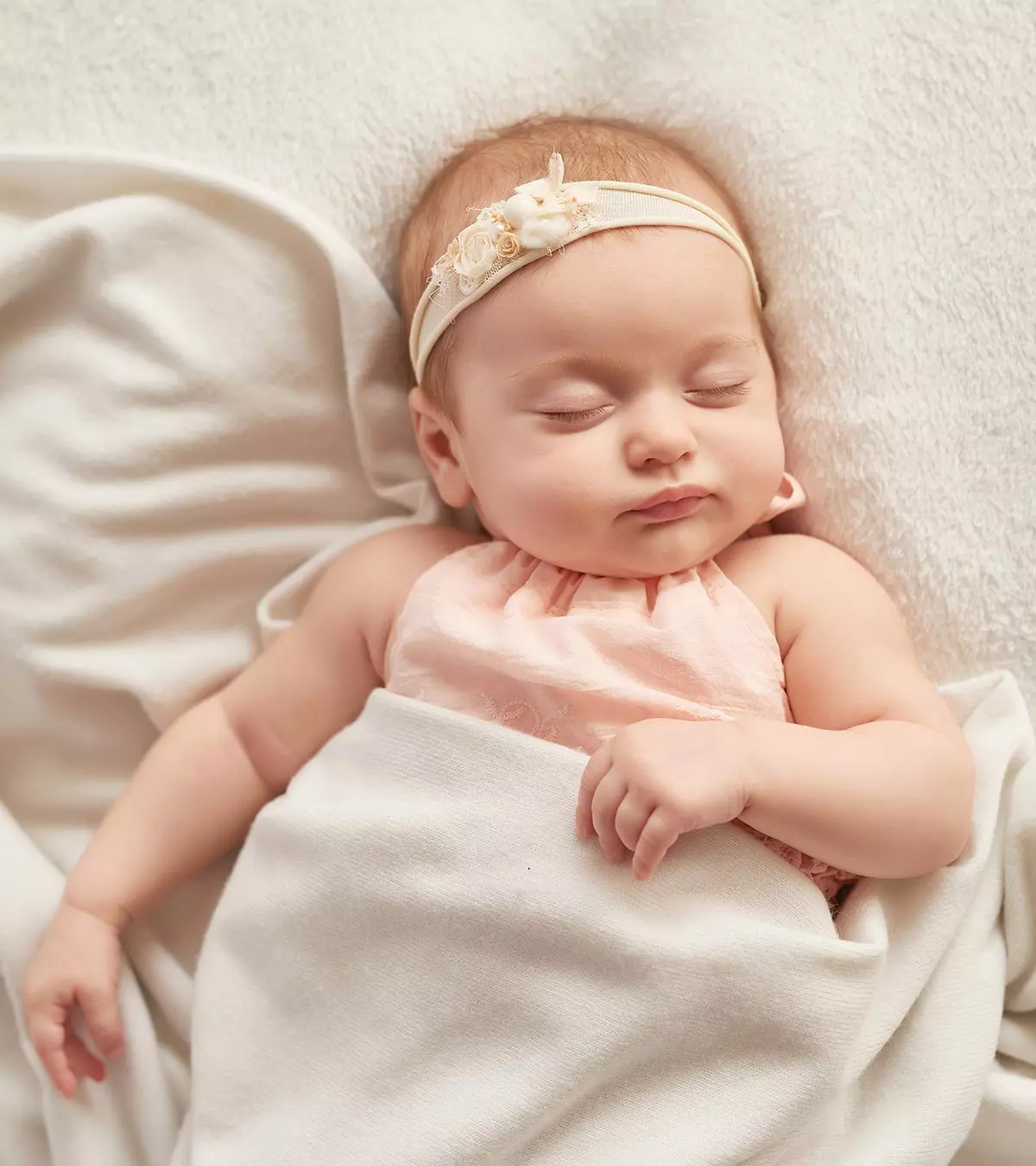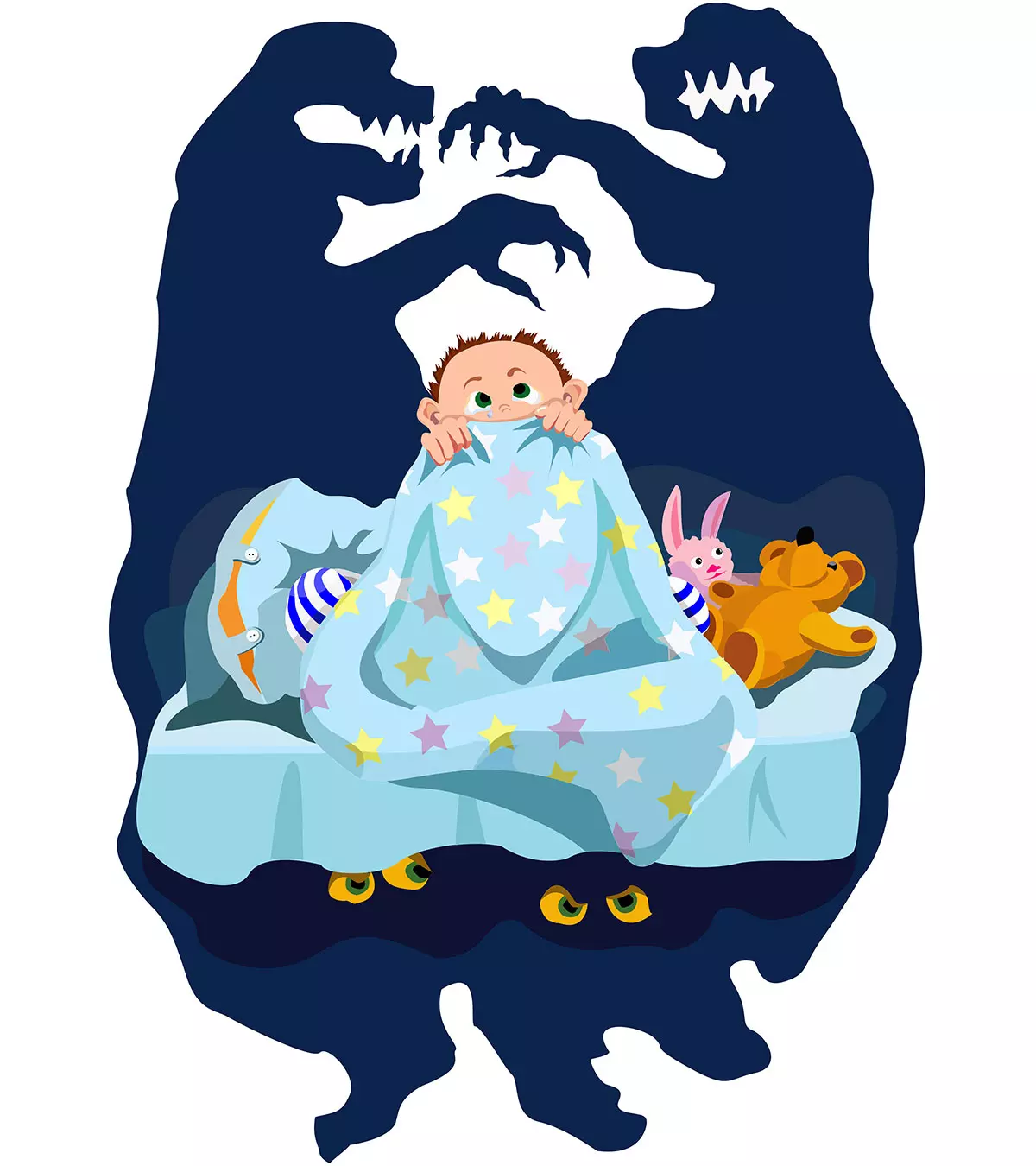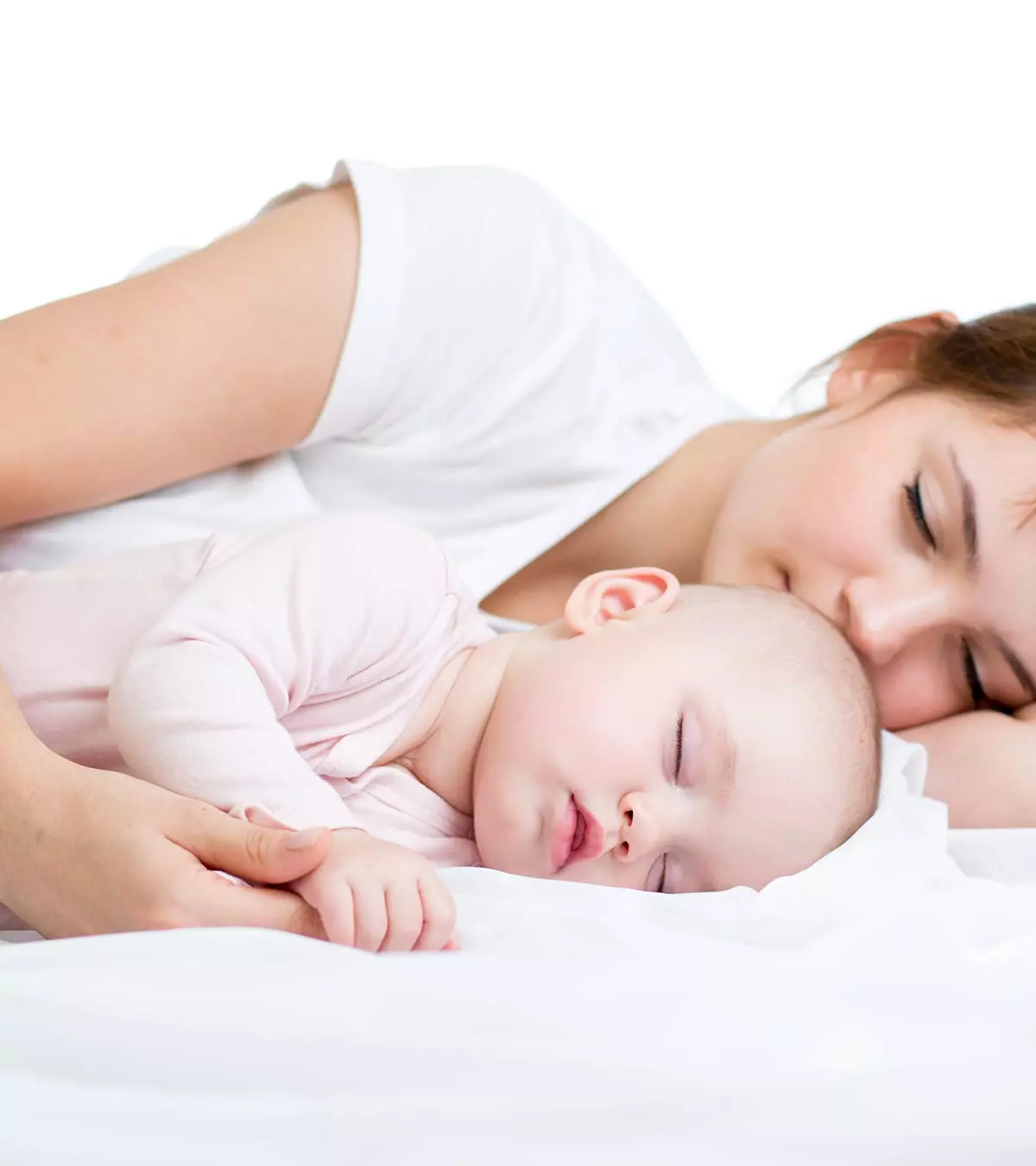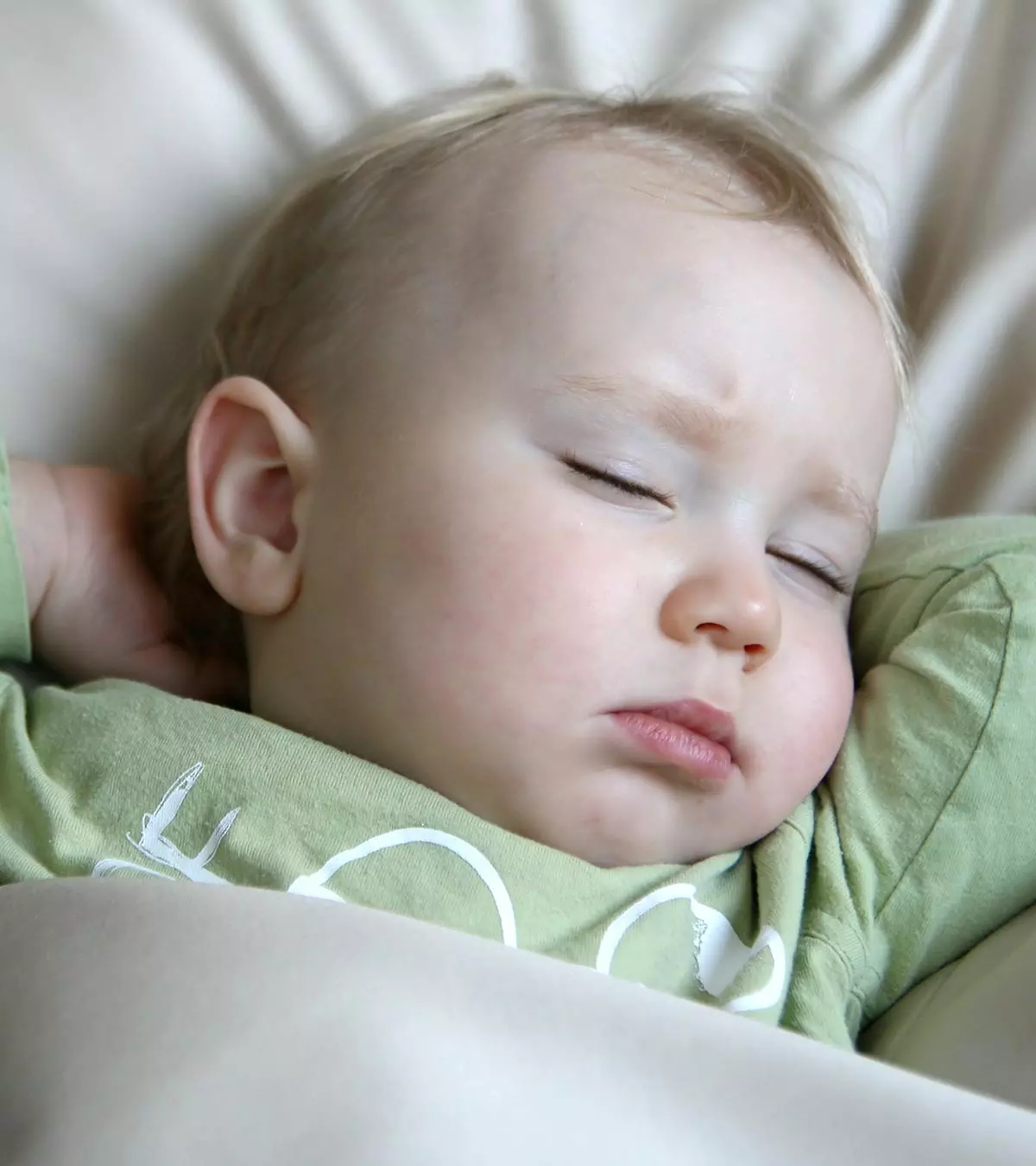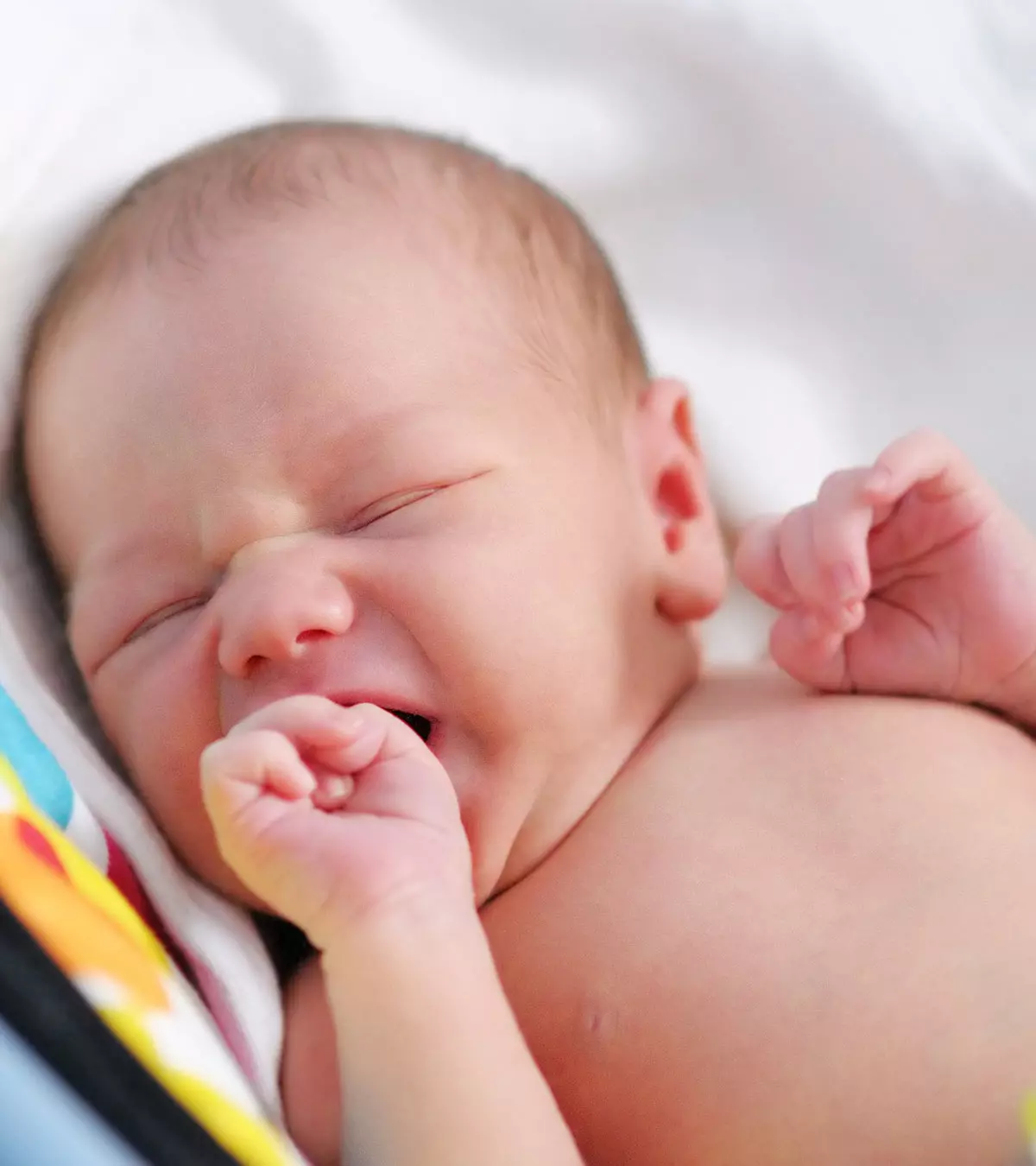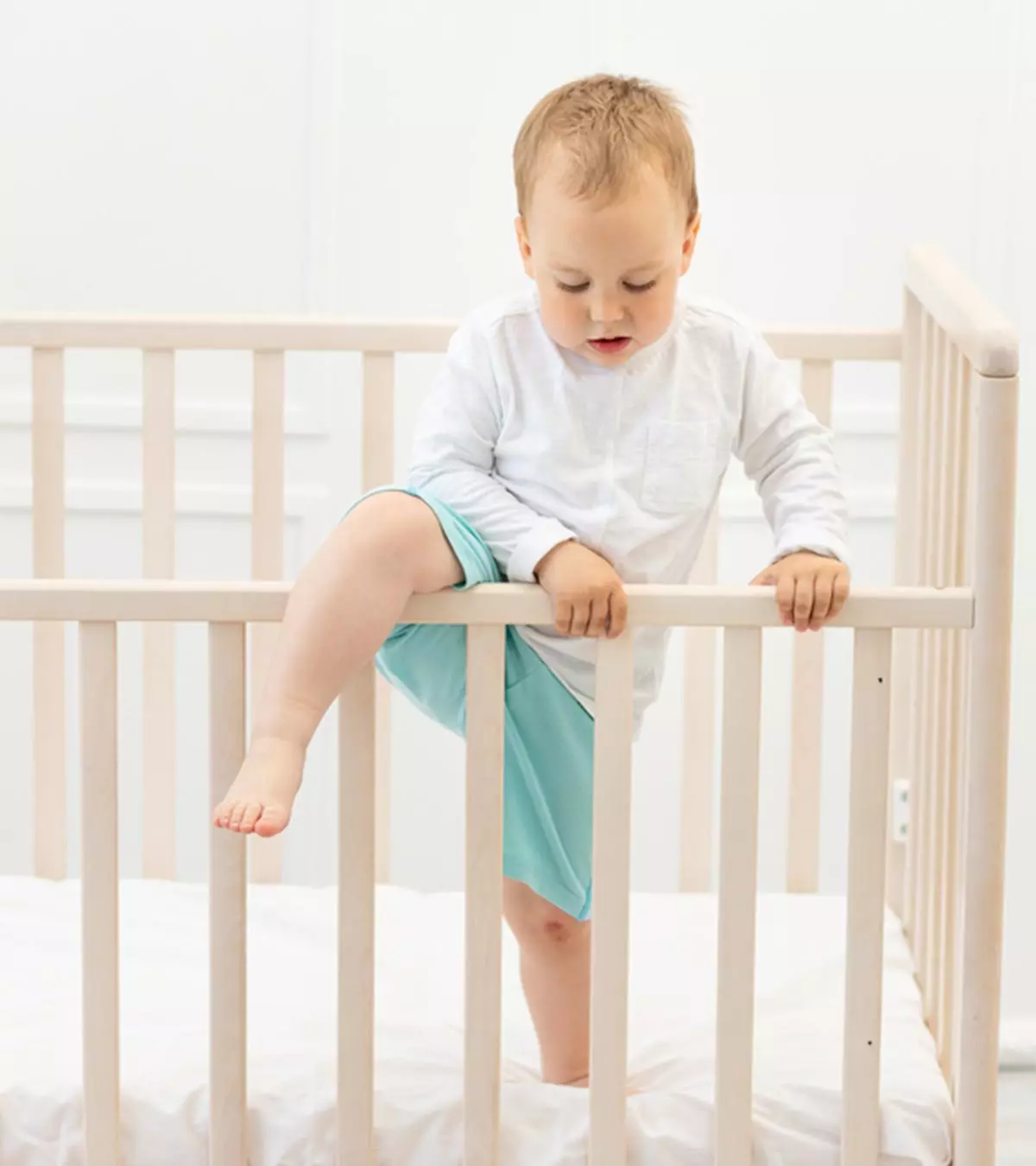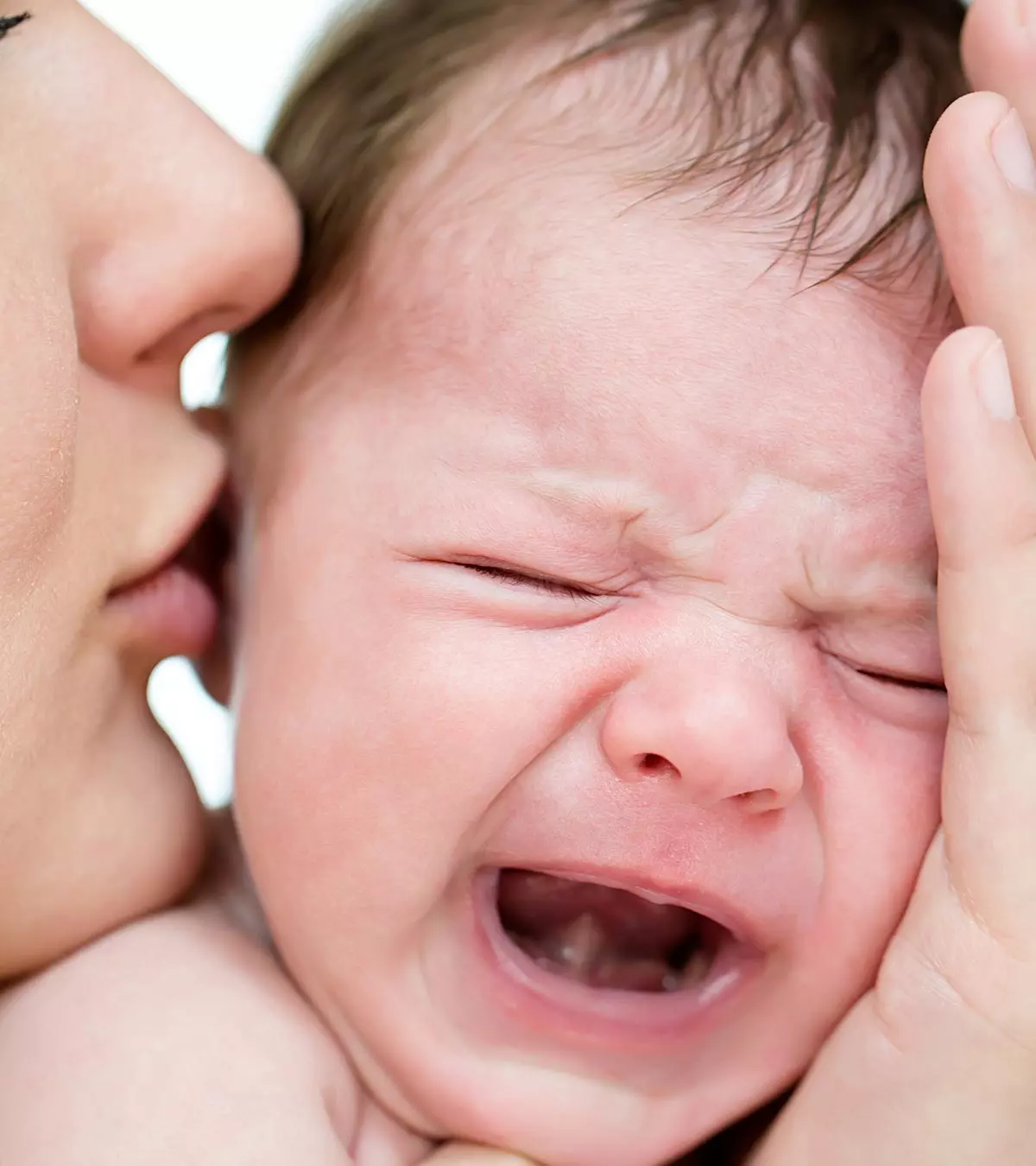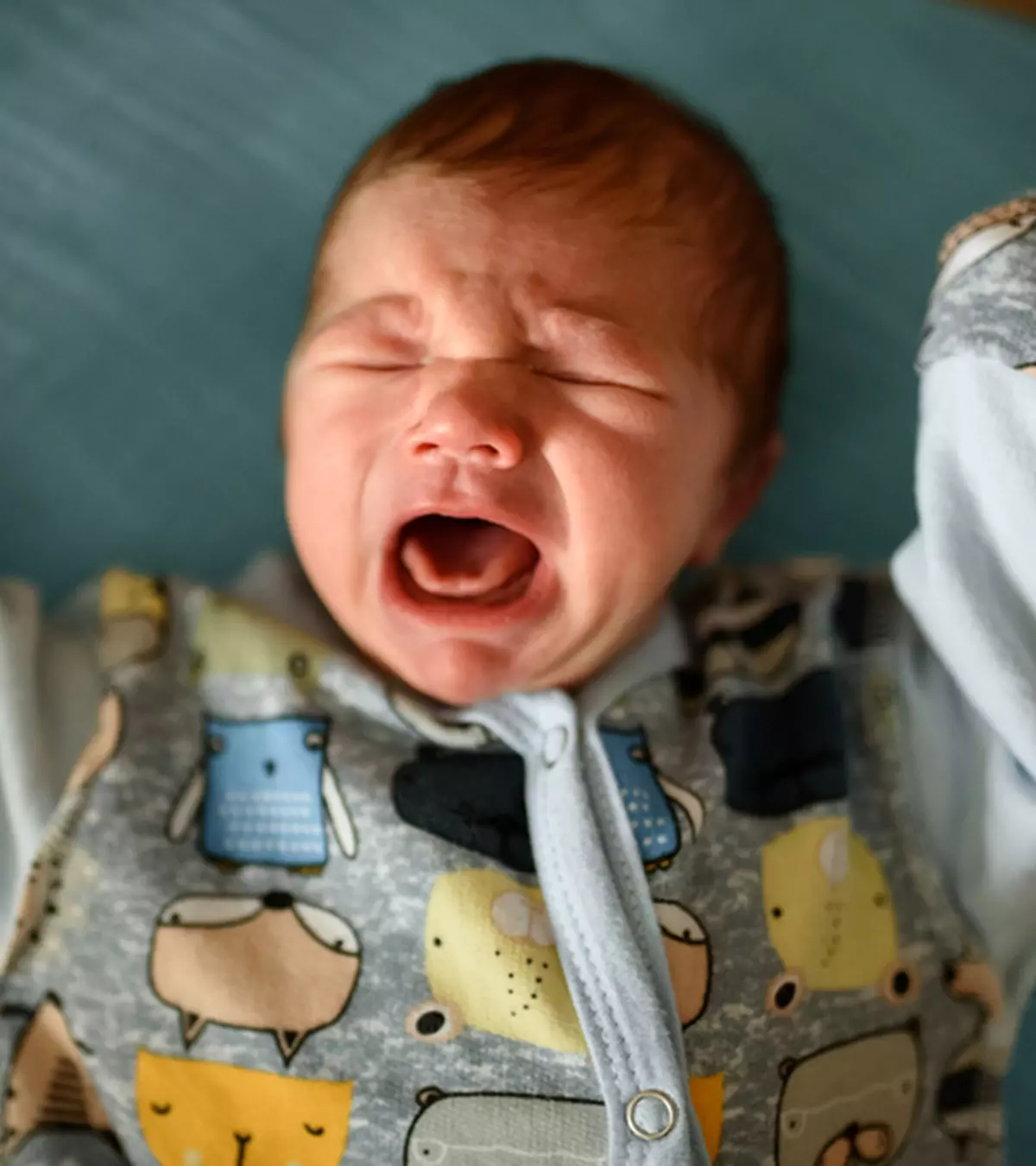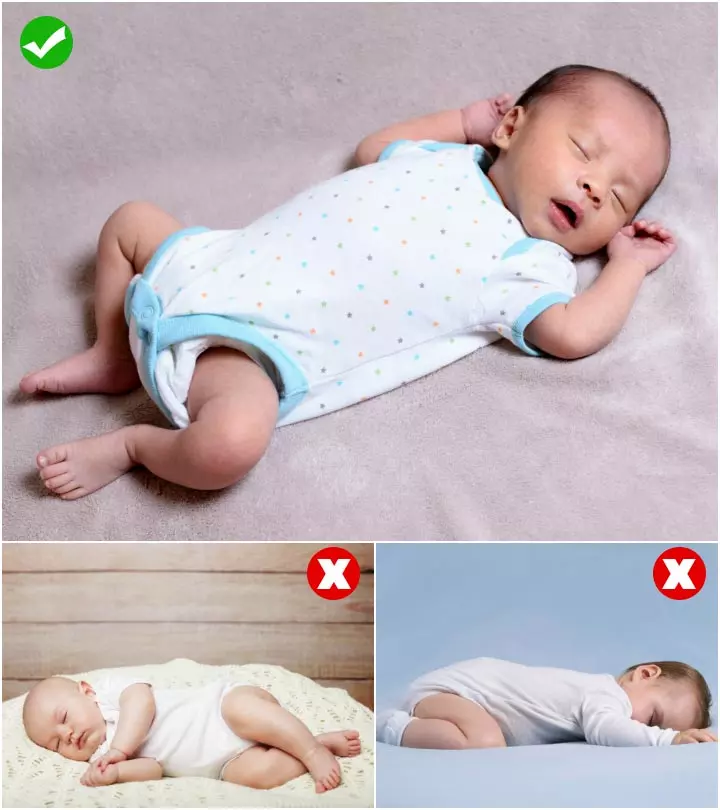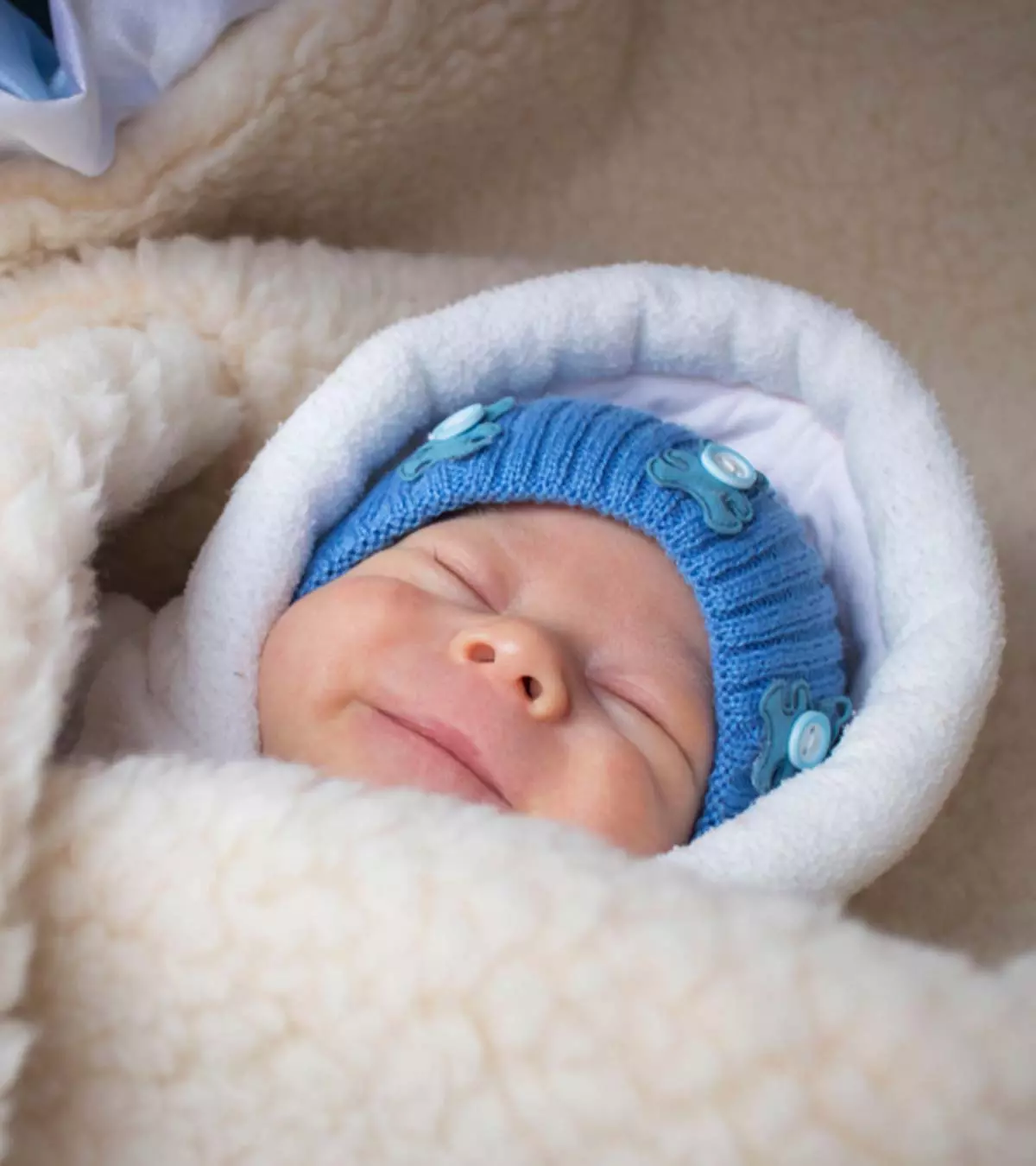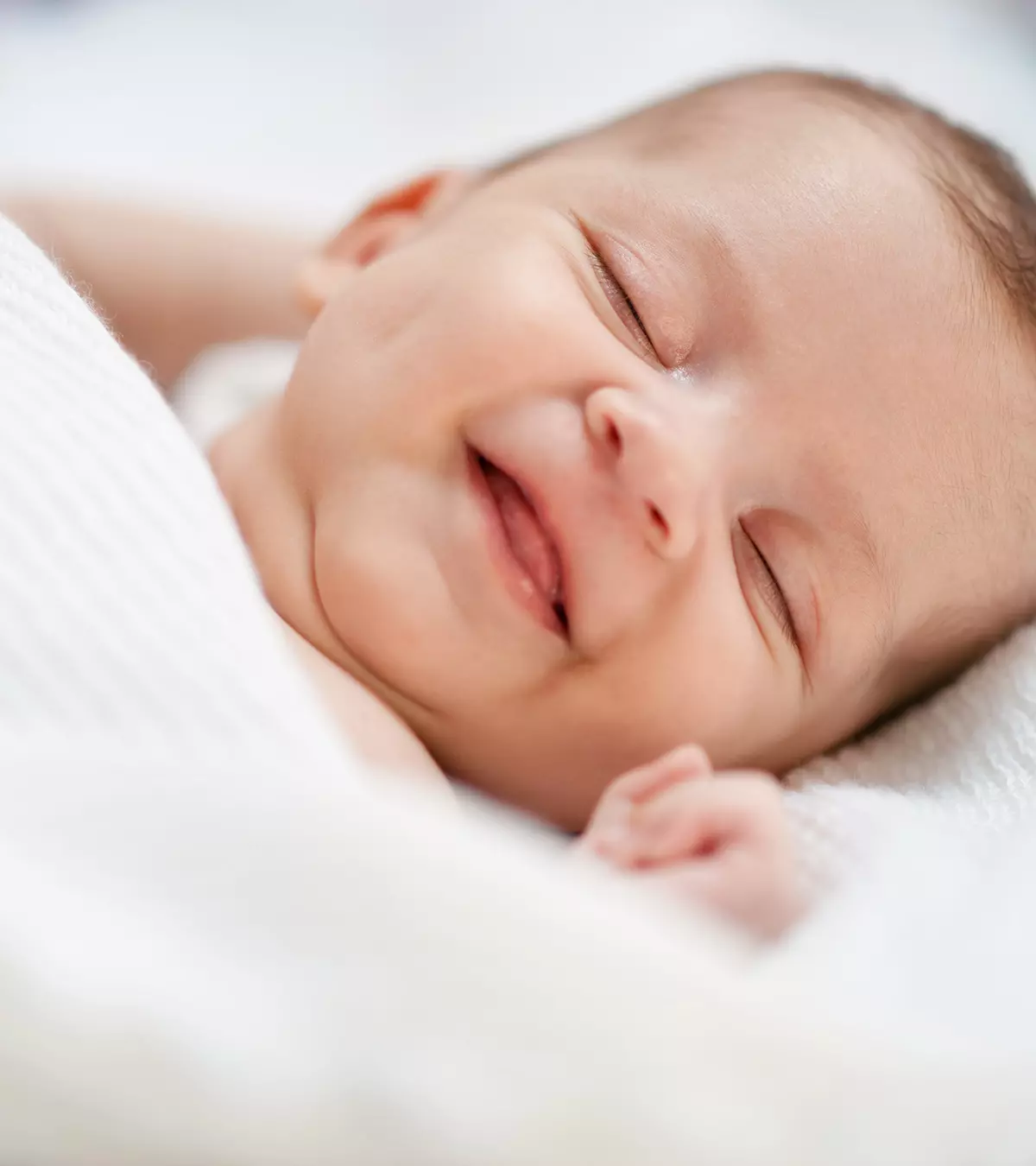
Image: iStock
There is nothing more exciting than seeing a baby’s smile for parents. Many parents may observe babies smiling in sleep, but why do babies smile in sleep? The smiling face of a sleeping baby is adorable and makes you curious. Babies may smile in sleep for various reasons, including reflexes or responses to certain stimuli during active sleep.

Infants go through various stages of sleep, and you may see them smile in one of the stages. Read on to know the various reasons behind a baby smiling in their sleep.
Key Pointers
- The smiling of babies during sleep is called endogenous smiling, which usually occurs when they dream of something pleasant.
- Dreaming and smiling usually occur in the rapid eye movement (REM) stage of sleep.
- Some babies may smile while falling asleep or waking up, indicating that they feel comfortable.
Why Does A Baby Smile During Sleep?
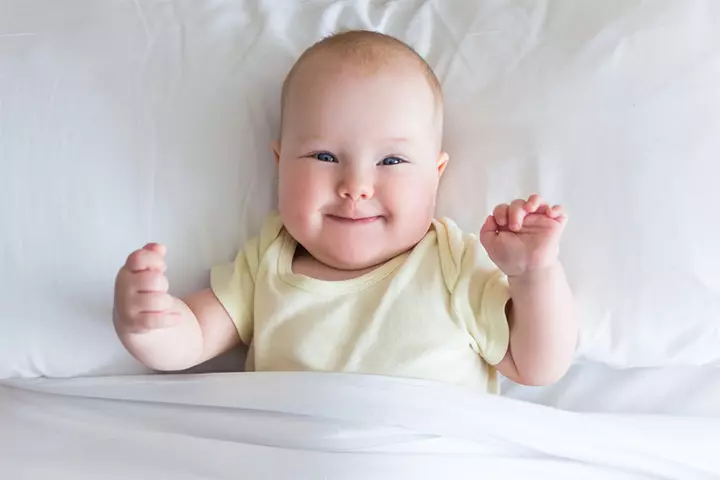
Image: Shutterstock
Unlike the “smiling response,” which occurs later in infancy, there is a form of smiling known as “endogenous smile” occurring in newborns and is not the result of external stimulation. Infants and toddlers smile, and sometimes even laugh, while napping because of specific brain functions as a manifestation of endogenously determined physiological rhythms during the rapid eye movement (REM) state of sleep, the stage in which we dream (1). The baby’s smile is a response to the dream. It is nearly impossible to tell the contents of the dream since babies cannot express their thoughts. But the smile is quite likely a response to an incident in a dream.
Infants use a smile as a communication tool. So a baby may smile if they dream of a parent or guardian, a favorite toy or pet and smile in response to the good feelings the vision creates.
Babies may also smile just as they fall asleep or wake up from a deep slumber, which could be a reaction to the pleasurable or good feelings they experience.
How Does Sleep Cause A Baby To Smile?
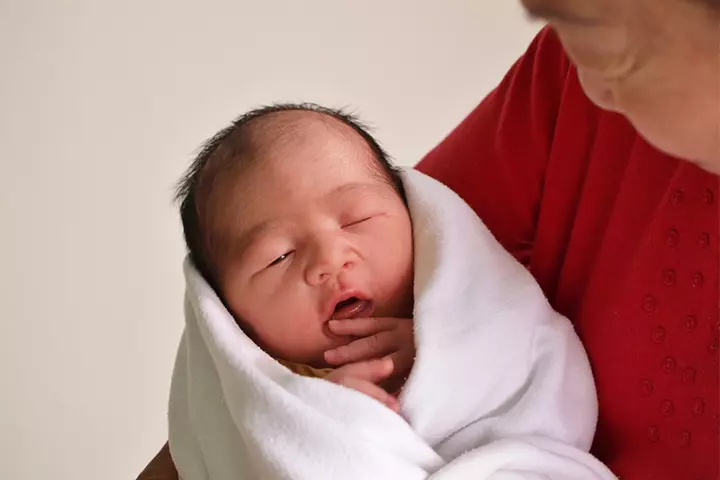
Image: Shutterstock
To know sleep smiling in babies, you need to understand sleep and its stages. The two fundamental phases of sleep are non-rapid eye movement (NREM) and rapid eye movement (REM).
Babies begin their sleep with the NREM phase, which has four stages (2):
- NREM 1: The baby starts to feel drowsy, eyes droop, may open and close dozing.
- NREM 2: This is when the baby is slightly asleep and will awaken if there are sounds and other disturbances around.
- NREM 3: It is the deep sleep stage where the baby is quiet and does not move.
- NREM 4: It is the deepest of NREM sleep, and the baby continues to stay still unless there’s a loud noise to wake them up.
 Quick fact
Quick factA baby enters stage 1 of the sleep cycle, and moves into the subsequent stages 2, 3, 4, before coming back to 3, 2, and REM. REM occurs between the above stages of NREM sleep in the following manner:
NREM 1 → NREM 2 → NREM 3 → NREM 4 → NREM 3 → NREM 2 → REM → NREM 2
Thus, sleep occurs in cycles with REM occurring episodically between the phases of NREM sleep.
REM, Dreams, And Smiling
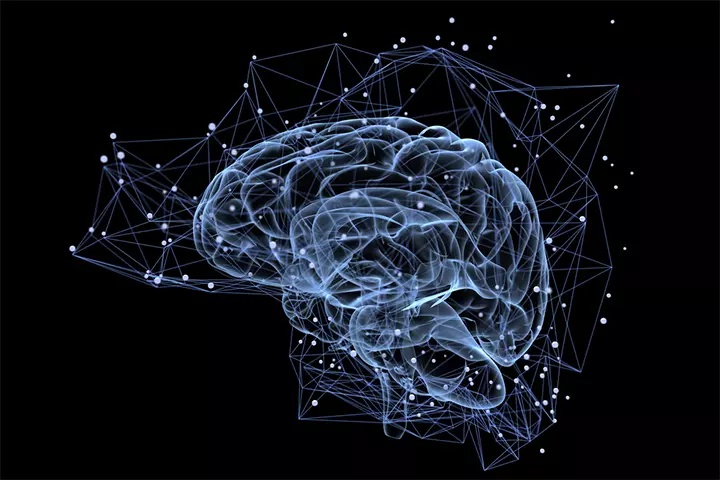
Image: Shutterstock
REM (rapid eye movement sleep). This is a light sleep when dreams occur and the eyes move rapidly back and forth. Sleep experts believe that the eye movements are somewhat related to the dreams being processed by the brain (3).
The REM stage causes an increase in brain activity, sometimes to an extent to wake the person up (4). The electrical patterns of the brain during REM sleep are similar to those that are active when we are awake. This suggests that dreams during REM sleep occur because the brain seems to simulate reality.
Frequently Asked Questions
1. Why does gas make babies smile?
Babies’ smiles are an involuntary response of their brain, so the fact that gas makes babies smile is a myth; there is no evidence of it.
2. Do babies with autism smile in sleep?
Babies with autism usually avoid eye contact and refrain from smiling, grinning, or laughing when awake (5). But, like any other infant, they may or may not smile while sleeping.
3. Why do babies smile at the ceiling?
You may often see your baby smiling at inanimate objects, such as ceiling fans or lights on the ceiling, because they are drawn to things with light, movement, and contrast, which is a normal response (6).
4. Do babies see angels when they smile in their sleep?
There is no scientific evidence to prove that babies smile during their sleep because they see angels. Also, it is difficult to determine what babies dream of since they cannot communicate their thoughts through language.
Why babies smile in their sleep is a common and natural question among parents and caregivers. Babies may smile or even laugh in their sleep due to brain stimulations. Sometimes, a smile can be a response to a happy dream. However, it is impossible to tell what they are dreaming since they cannot communicate. Sometimes, younger babies can have a reflex smile, which is not related to any response or emotions. Most sleep smiles occur in REM sleep, and since babies tend to sleep more than 16 hours a day, most of it is REM sleep.
Infographic: Interesting Findings About A Baby’s Smile While Sleeping
Witnessing a baby smile while sleeping is captivating, but did you know that certain scientific events and factors influence that adorable smile? If you are already inquisitive, go through this infographic to learn some fascinating facts about babies smiling during sleep. Illustration: Momjunction Design Team
Illustration: Why Do Babies Smile In Their Sleep?
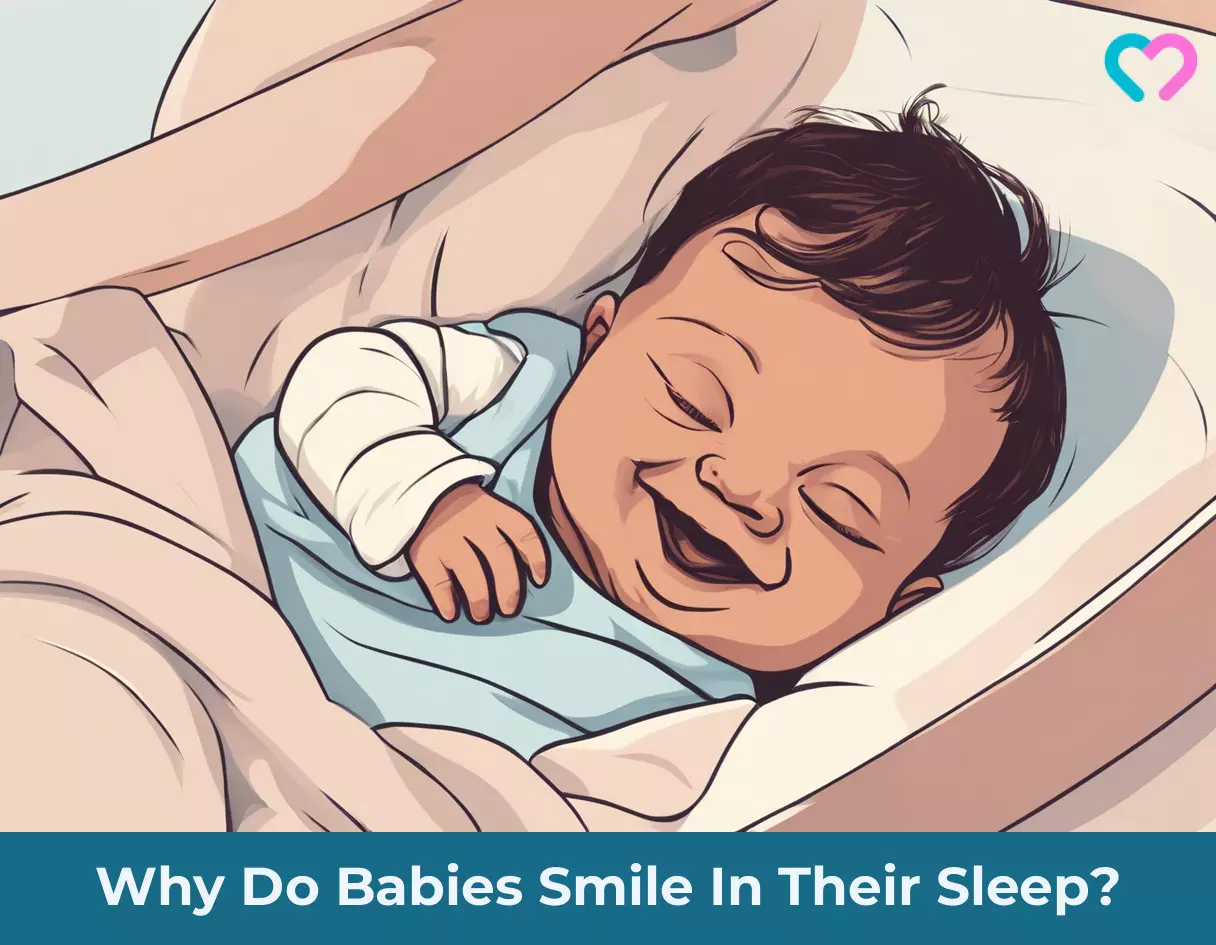
Image: Stable Diffusion/MomJunction Design Team
References
1. The secrets of infants smile; Penn State University
2. Newborn-Sleep Patterns; Stanford Medicine
3. Natural Patterns of Sleep; Harvard Medical School
4. The Characteristics of Sleep; Harvard Medical School
5. A Guide to the Signs of Autism in Infants; Developmental Pediatrics.
6. Mishal Ali Zafar; What Does It Mean If Your Child Stares At The Ceiling Fan?; Memorial Care
7. When Will My Baby Smile?; Pathways.org
8. Smiling in Infants; JSTOR
9. Newborn-Sleep Patterns; Children’s Hospital of Philadelphia
Community Experiences
Join the conversation and become a part of our nurturing community! Share your stories, experiences, and insights to connect with fellow parents.
Read full bio of Dr. Nikolina Zdraveska
Read full bio of Rohit Garoo
Read full bio of Dr. Ritika Shah
Read full bio of Anindita Ghatak





